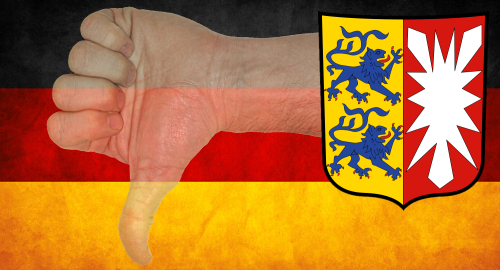 Germany’s latest gambling treaty appears dead in the water after two state parliaments decided not to sign on.
Germany’s latest gambling treaty appears dead in the water after two state parliaments decided not to sign on.
In March, the leaders of Germany’s 16 länder approved the country’s new State Treaty on Gambling, which was to take effect on January 1, 2018. But the treaty required the unanimous approval of each state’s legislature, and legislators in the northern state of Schleswig-Holstein voted on Friday to opt out of the treaty.
Schleswig-Holstein’s vote wasn’t unexpected, as the state’s newly elected government announced in June that it planned to revive the state’s previous gambling legislation, which, unlike the federal treaty, was cool with operators offering online casino and poker in addition to sports betting. Friday’s vote wasn’t even close, with only the Social Democratic Party members voting in favor of the federal treaty.
Schleswig-Holstein had also announced in June that it would team with the state governments in North Rhine-Westphalia, Rhineland-Palatinate and Hesse on a new regulatory scheme based on the original Schleswig-Holstein licensing regime that it hoped the rest of the states would eventually join.
Earlier this month, legislators in North Rhine-Westphalia announced that they too would not be ratifying the new law, and therefore the state didn’t intend to take over responsibility from the state of Hesse for implementing the new federal treaty.
The net result is that the status quo will likely prevail in Germany for the foreseeable future, meaning German-facing sports betting operators holding licenses in other European Union jurisdictions can continue to serve their German punters provided they pay attention to anti-money laundering responsibilities and don’t violate advertising restrictions.
The new treaty the states agreed to in March was intended to address the failings of the 2012 treaty, which capped the number of available sports betting licenses at 20. That cap, along with the unnecessarily opaque licensing process that followed, was routinely rubbished by both local courts and EU legal bodies.
But the new treaty was similarly condemned by the European Commission just days after its release, and a temporary workaround proposed by Hessian regulators met its Waterloo in a local court a couple months later.